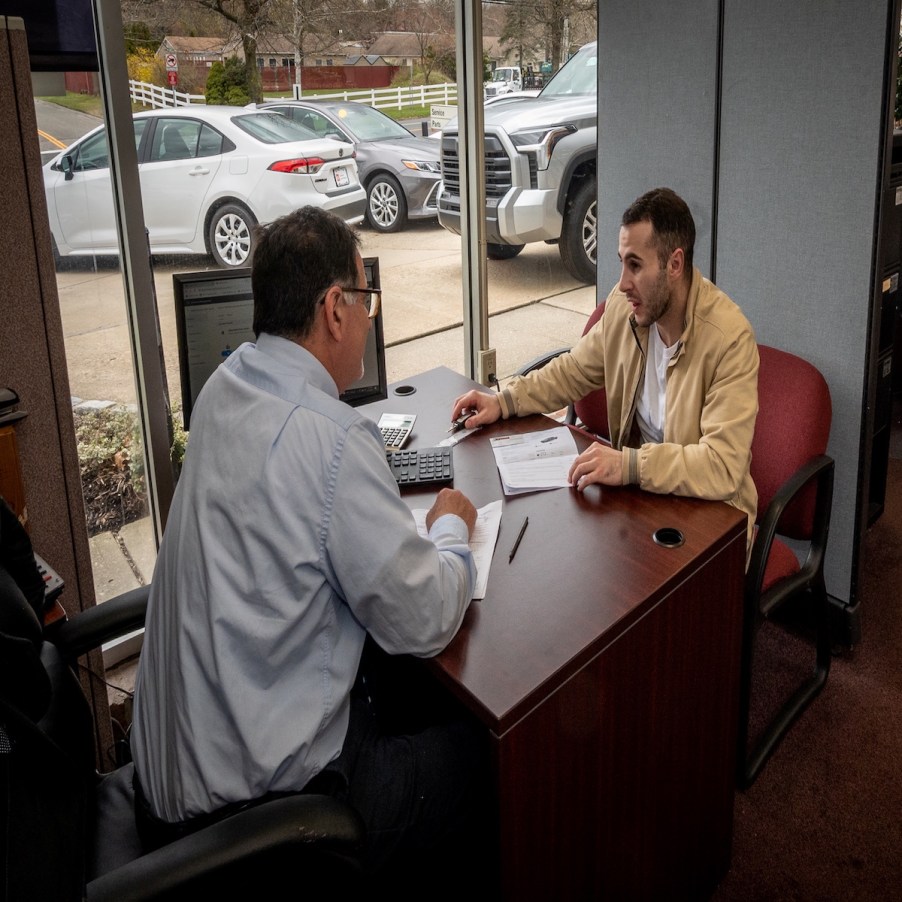
7 Tips to Save Money on Interest When Buying a Car With Bad Credit
The car buying process has become increasingly complex, with rising prices, limited availability, and climbing interest rates. Throw a low credit score into the mix, and the whole experience becomes even more frustrating.
Buying a car with bad credit can result in a higher interest rate, costing you more over the life of the loan. While drivers with excellent credit scores receive the best offers when purchasing a new vehicle.
In most instances, those with a credit score of 669 or below are considered subprime buyers, accounting for approximately 17% of auto loan applicants. The chances of auto loan approval is questionable and often come with much higher interest rates. Even if you don’t have a great credit score, there are several ways to get a better deal.
Here are seven tips for saving money on interest when buying a car with bad credit.
1. Know your credit score

First and foremost, it is essential to know your credit score to have realistic expectations of your chances of receiving an auto loan, the interest rate, and how that interest affects your payments. You can request a free copy of your credit report from the major credit bureaus once a year for free. Many online sites offer free access to your credit score. But be aware that these sites may not have the most up-to-date information.
You want to ensure there are no errors on the credit report and look at ways to improve your credit score by analyzing your current account history.
2. Improve your score before buying a car with bad credit
Paying your monthly bills on time, catching up on past-due balances, and paying down revolving accounts will help improve your credit score.
Experian says, “There’s no set timeline for rebuilding your credit. How long it takes to increase your credit score depends on what’s hurting your credit and the steps you’re taking to rebuild it.”
3. Bring a larger down payment
Car dealers consider a trade-in vehicle, cash, or a combination as the down payment. The more money you put down, the less you will have to borrow. A larger down payment will lower your monthly payment and decrease the interest charged over the life of the loan.
4. Get prequalified
Talk to your local bank or credit union to discuss their auto borrowing terms and see if they can prequalify you for a loan. Some lenders pull a soft credit check that does not affect your credit score to give you a better idea of your chances of getting approved.
Before going to an auto dealership, it is always a good idea to talk to several financing institutions to compare interest rates to be aware of what you are eligible for based on your income and current credit score.
According to NerdWallet, “Auto loan pre approval gives you leverage at the dealership, so you can get the best interest rate possible. Let the dealer try to beat or match the rate and terms. Preapproval brings peace of mind that you got the best loan possible.”
5. See what the dealer’s manufacturer is offering when buying a car with bad credit
Consumer Reports suggests checking auto manufacturer websites to see if they have any deals or programs for subprime borrowers. Most offers will be on lower-priced entry-level cars to prevent purchasers with a poor credit history from getting into a high-margin luxury vehicle. But, if you are not opposed to a less-expensive car, this may be a great option.
6. Consider buying a used car for less money when looking at a car with bad credit
Used cars will generally always cost less than a new car, posing less of a financial risk for lenders. Typically, subprime buyers looking at vehicles that cost less have an increased likelihood of being approved for an auto loan.
7. Report suspected discrimination when it is presented
A car dealer uses a third-party company for financing as an indirect loan. This type of lending can be discriminatory and hard to regulate. If you feel you have been a victim of discriminatory lending, you can file a complaint with the Federal Trade Commission by calling 1-877-FTC-HELP (1-877-382-4357).


